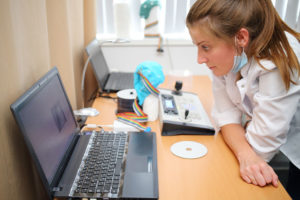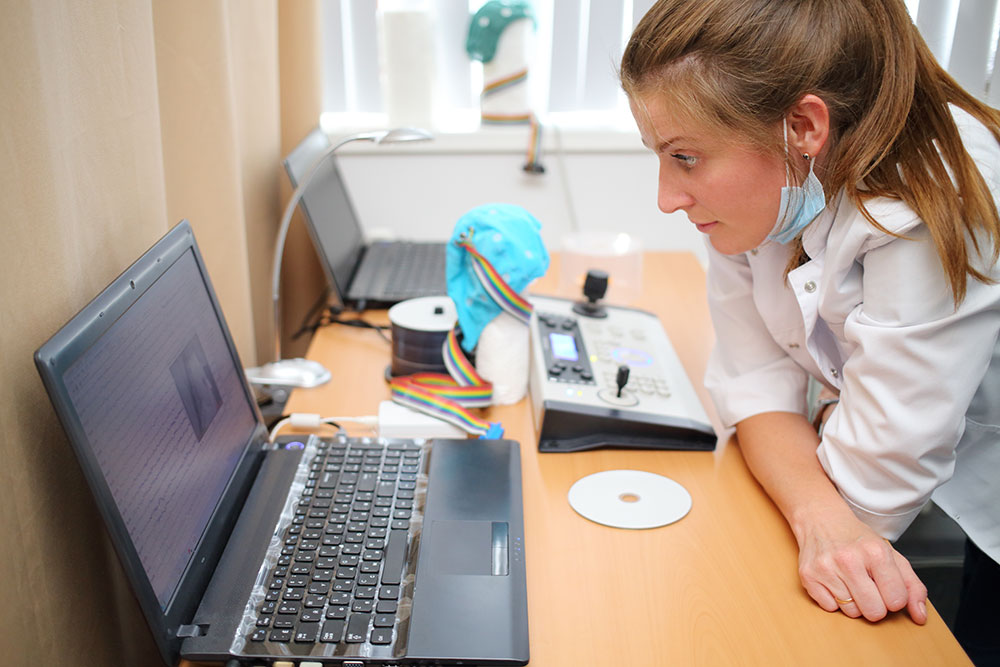Disclaimer: The information on our website is provided for general information purposes only. We make no representations or warranties of any kind, express or implied, about the completeness, accuracy, reliability, suitability or availability with respect to the website or the information contained on our website for any purpose. Any reliance on such information is therefore strictly at your own risk and we are not liable for any damages or losses arising out of or resulting from your reliance on any information contained on our website.
A neuroscientist is curious about how the brain works. Additionally, they study the brain and then try to solve questions using scientific experiments. Some neuroscientists also specialize in a certain field of study, such as neurological disorders or the impact injury has on the brain. Others may be interested in how the brain learns and study ways to increase its effectiveness. Next, watch a video to learn why a neuroscientist loves this profession.
How to Become a Neuroscientist

To become a neuroscientist you will need to earn a Ph.D. that focuses on the field of neuroscience. You’ll start your educational journey by earning a bachelor’s degree. You’ll want to choose a bachelor’s program that has courses in biology, physiology, psychology, and human anatomy. Bachelor’s degrees that prepare applicants for medical school would be appropriate.
Once you earn your undergraduate degree, you’d move onto a master’s degree with advanced courses in neuroscience or the biological sciences. At the graduate level, you will want to choose a program that provides clinical lab experience and options to study neuroscience at depth. Next, you’ll choose a Ph.D. program that enables you to focus on neurological research.
Job Description of a Neuroscientist
According to Eric Chudler of the University of Washington, the term Neuroscientist “is actually a general word that describes someone who studies the nervous system. Many neuroscientists wear several hats and your tasks may vary depending on the type of neuroscientist you become. For example, a neurosurgeon may also have a Ph.D. in physiology. He or she may work in the operating room but also have time to perform experiments. There are many career paths that neuroscientists can take.” Some career paths listed include neuroanatomist, neurobiologist, neurochemist, neurological surgeon, neurologist, neuropsychologist, neuropharmacologist, neuropsychologist, neurophysiologist, physiological psychologist, psychiatrist, and psychophysicist.
Neuroscientists try to discover new facets of the brain every day. They test theories using scientific methods to try and solve their theory and study the brain. Since they can be found in various fields, most specialize on a certain area of research. Neurologists with a medical school background may focus on the prevention and reversal of diseases such as Parkinson’s or Alzheimer’s or study effective ways of preventing or repairing a brain injury.
Other neuroscientists may study the impacts of meditation, prayer, acupuncture, or hypnosis. These neuroscientists may be interested in natural ways to improve overall health and also look at natural ways to reduce pain or the symptoms of chronic illness. Some neurologists with a background in psychology may study mental health disorders and human emotion. They may also find themselves researching ways to help addicts overcome addiction and study the impact of addiction on the brain. These scientists with a background in psychology may also ponder what makes humans, human.
Whatever the research, a neuroscientist will also need to share their research by educating others, publishing their findings in scientific journals, and reporting on the progress of their experiments to their employer. They may work in a clinical lab setting or office setting.
Brain Scientist Career Video Transcript
Interview with Dr. Dave Thomas, Brain Scientist at the National Institute on Drug Abuse. What’s cool about science, is scientists have these ideas and they don’t know whether they’re true or not and to convince other people, they do experiments, they try to prove it and it’s really really fun when they finally do prove it and say ‘Ah Ha! I was right!’ and then they share it with the world and people see the world a different way. I think I thought the brain was very interesting because it’s a lot of us, who we are. But when you learn how it works, all the little machinery in it, all the things it does, it actually is a really sophisticated machine.
Each day is different. Some days I go and talk to kids at schools about the brain. Some days I talk to famous scientists, they call me with great ideas about what they’ve discovered. It’s almost like as if Albert Einstein would call me and say ‘Hey Dave, I just came up with the Theory of Relativity.’ Every day involves some learning. Something new I learn about the world and science. Keep asking questions, keep trying to discover things. Don’t accept things for just the way they are. I mean, scientists that what they do. They question.
Article Citations
National Center for O*NET Development. 19-1042.00. O*NET OnLine.
Bureau of Labor Statistics, U.S. Department of Labor, Occupational Outlook Handbook, Medical Scientists.
University of Washington. Maintained by Eric Chudler. To Become a Neuroscientist.

